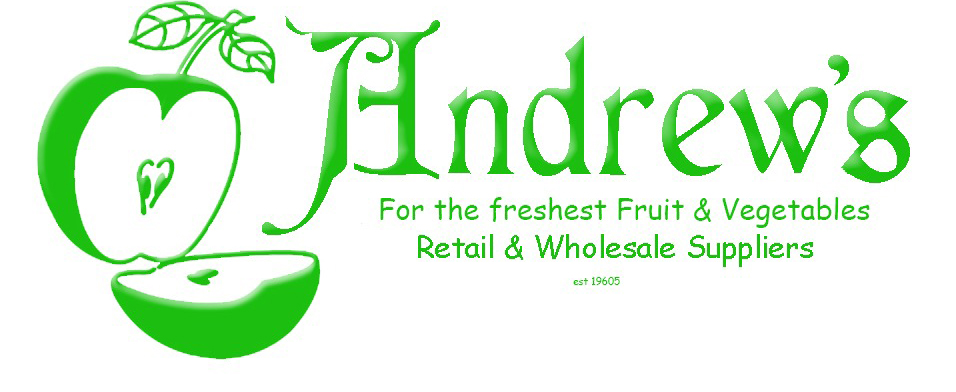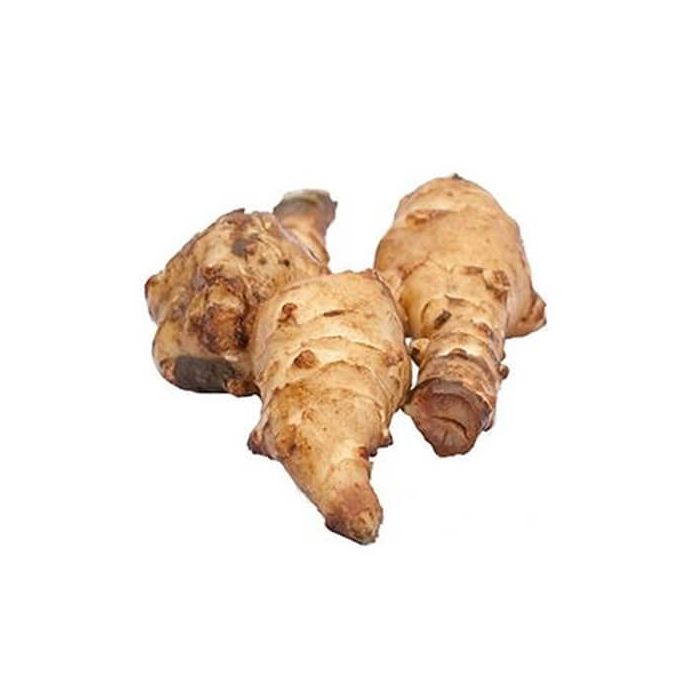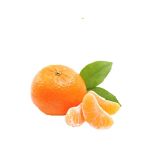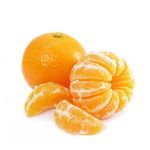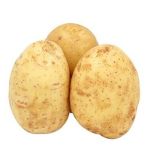Jerusalem Artichokes
Jerusalem Artichoke
| Product Amount | 1Kg |
|---|---|
| Origin | France |
| Est. Delivery Availability | Next Day Delivery |
| Delivery Services Availability | Local Delivery & Nationwide Delivery Available |
Jerusalem Artichokes
Useful Information
Although known by the same name as artichokes, these large, potatoe-like, tubers are not related to globe artichokes. The Jersusalem artichoke is actually as member of the sunflower family; its name is corruption of Italian word girasol, which mean 'turning to the sun'.
Over 300 years ago, French explorers found the Indians in America growing and eating an odd kind of root that looked rather like a large, reddish peanut. The explorers took the strange root back to France, and from there it spread to Britan and other countries. Constant propagation and cross-breeding have improved it into the Jerusalem artichoke as we know it today. In Europe, this humber tuber has long served farmers as a practical, easy-to-grow stock and poultry food.
One good thing about Jerusalem artichokes is that they store carbohydrates in the form of insulin rather than starch and sugar in the form of fructose, and because of this they contain very few calories. They are sometimes recommended as a substitute for other carbohydrates in the menus of diabetics. Besides being low in calories, they contain various vitamins and minerals, particularly thiamine (viamin B1), and potassium.
These handy tubers are easy on the gardener because they do not need to be harvested. Theyc an be left in the ground all winter, and dug as they are required at any time after the first frost and throughout the winter season. Actually, it is really best to leave them outside as their tender skins make them faily perishable when stored indoors. If you do bring them indoors, keep them moist until you are ready to use them as they dry out quickly. In northern areas, tubers left outside need to be protected from alternate frosts and thaws by a thick layer of mulch.
When you have dug as many artichokes as you are ready to use, put them back in a bucket of water to loosen the dirt, then scrub them with a vegetable brush. It is usually unnecessary to peel them. If you feel you must peel them, place them immediately in cold water with a little salt and lemon juice or vinegar to prevent them darkening.
This versatile vegetable can be used in many different ways. You can do practially anything to Jerusalem artichokes that you can do with potatoes - they can be baked, grilled, mashed, pureed, sauted, or puplped and put in a meat or vegetable load. Allow about 100g (4oz) for each person.
Nutritional Information
 |
 |
 |
||||
| Veg | Artichoke | Veg | Jerusalem Artichoke | Veg | Asparagus | |
| Nutrition (Per 100g) | ||||||
| Energy | 144KJ / 35kcal | 335KJ / 79kcal | 119KJ / 28kcal | |||
| Fat | 0.2g | 0.1g | 0.6g | |||
| of which saturates | trace | not applicable | 0.1g | |||
| Carbohydrate | 2.7g | 17.5g | 2.0g | |||
| of which sugars | 1.3g | 9.6g | 1.9g | |||
| Fibre | 5.4g | 1.6g | 1.7g | |||
| Protein | 2.8g | 2.0g | 2.9g | |||
| Salt Equivalent | 0.1g | not applicable | not applicable | |||
| Sodium | 0.03g | trace | not applicable | |||
